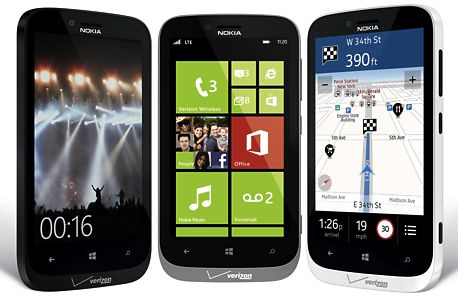
Nokia's new mid-range, WP8-packing Lumia 822 coming to Verizon
Before the public unveiling of Windows Phone 8, Nokia on Monday introduced the Lumia 822 smartphone. Sporting the latest mobile operating system from Microsoft, the Lumia 822 will be exclusively available at Verizon Wireless.
The Nokia Lumia 822 will feature 4G LTE connectivity with up to 100Mbps download and 50Mbps upload speeds. It has a 4.3-inch display with an 800 by 480 resolution, and a dual-core 1.5GHz Qualcomm Snapdragon S4 processor with 1GB of RAM. On top of the 16GB of internal storage, the Lumia 822 comes with a microSD card slot which can offer up to 64GB of extra storage. As it usually happens with high-end Nokia devices, a Carl Zeiss lens is onboard for the dual-LED 8 megapixel back-facing camera which is capable of 1080p video recording at 30 frames per second. On the front, there is a 1.2MP HD camera that can shoot 720p video.
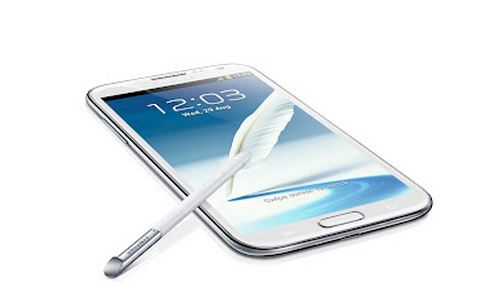
Samsung Galaxy Note II available for pre-order with Verizon logo on home button
The Samsung Galaxy Note II launched barely two months ago at IFA and local US carriers such as Sprint and T-Mobile already make it available for purchase. Verizon is now in the same boat and is accepting pre-orders for the 5.5-inch "phablet."
The Samsung Galaxy Note II will arrive at the big red sporting 4G LTE connectivity and similar specs to the international model. That means the same 5.5-inch HD Super AMOLED display with a 1280 by 720 resolution, 1.6GHz quad-core Exynos processor with 2GB of RAM, 16GB of expandable internal storage and Android 4.1 Jelly Bean with TouchWiz running on top of it. On a two-year contract it will cost $299.99 at Verizon Wireless, and is currently available for pre-order in both Marble White and Titanium Gray.
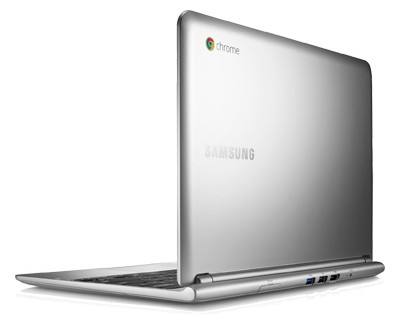
Samsung Chromebook 3G is available for $329.99
Bad news for some people who pre-ordered the new Samsung Chromebook yesterday. Shortly after the announcement, the South Korean manufacturer introduced a 3G model.
Chromebook 3G comes with an 11.6-inch display sporting a 1366 by 768 resolution, 1.7GHz Samsung Exynos 5 dual-core processor based on the Cortex A15 architecture, 2GB RAM, 16GB SSD for storage, runs Chrome OS and, on top of the Wi-Fi model from yesterday has a Verizon Wireless 3G WWAN with up to 100MB of free cellular data per month for a period of two years. The price for getting a Samsung Chrombook with cellular connectivity is $329.99. Worth it?
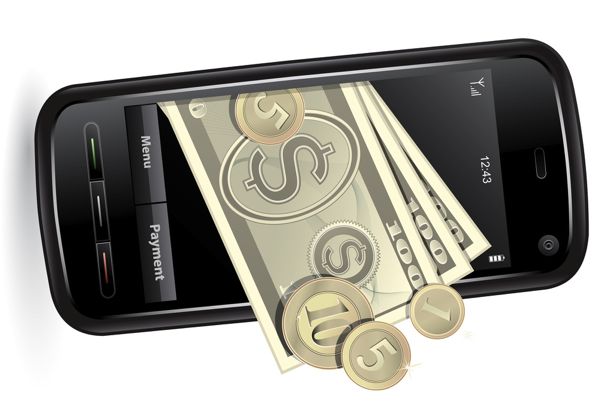
Google Play introduces carrier billing for Verizon Wireless customers
Last May, Google expanded the carrier billing option in Google Play to include all media content (apps, books, music, movies, TV shows, periodicals) for fifteen different wireless carriers worldwide. In the United States, this included AT&T, Sprint, and T-Mobile.
Now, it looks like Verizon Wireless is joining in on the act.
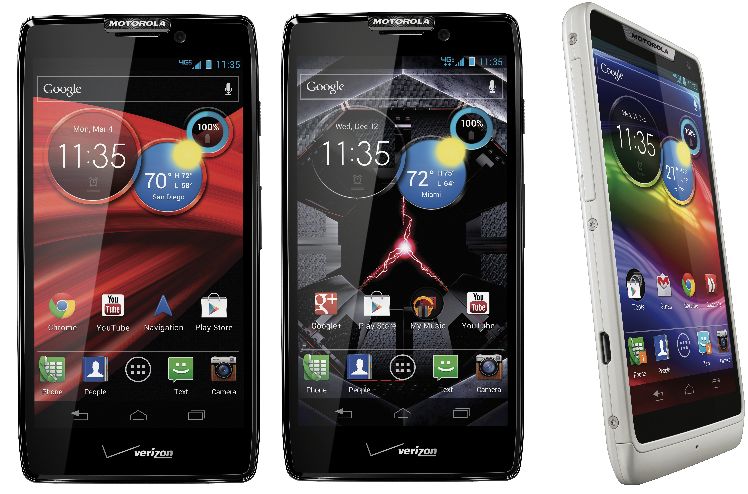
New Motorola Droid Razrs are available starting today at Verizon
Motorola announced the new Droid Razr family of smartphones more than a month ago, and today the 4G LTE-ready Droid Razr HD, Droid Razr Maxx HD, and Droid Razr M are available for purchase at Verizon Wireless.
The cheapest of the bunch is the entry-level 4.3-inch Droid Razr M that comes in two colors, white and black, and will set back customers of the big red $99 on a two-year contract. The 4.7-inch Droid Razr HD is also available in the same palette, and runs for $100 more at $199. The Motorola Droid Razr Maxx HD is also the most expensive of the three, but comes with the biggest battery, costing a whopping $299 on a two-year contract and is only available in black.

Just under half of US wireless services now owned by foreign multinationals
With Softbank's majority stake acquisition of Sprint Nextel Corporation, the amount of foreign interest in the United States wireless market is greatly expanded. On the other side of the coin, wholly-American owned wireless companies are beginning to look like an endangered species.
The two largest US carriers, Verizon Wireless and AT&T are mostly owned by American companies, but based upon first quarter 2012 market share figures (source: Strategy Analytics) and corporate ownership percentages, we estimate that 45.3 percent of the United States' wireless market will be controlled by foreign multinational companies pending the regulatory approval of SoftBank's acquisition of Sprint. As the next four years fan out, we must turn our eyes to the smaller national competitors and regional carriers and see how they merge and change.
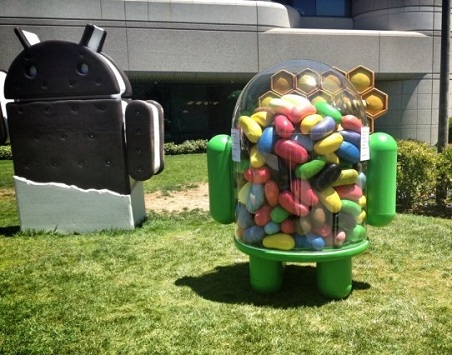
Google posts Jelly Bean factory image for Verizon Samsung Galaxy Nexus: Update at will!
Great news for Verizon Wireless Samsung Galaxy Nexus owners -- Google posted the Android 4.1 Jelly Bean factory image for the "forgotten" users of the big red.
The LTE Galaxy Nexus can be updated to Android 4.1.1 Jelly Bean, build number JRO03O using the factory image posted on Google Developers website. The recent development comes almost two months after the Mountain View, Calif.-based corporation released the factory images for the Samsung/Google Galaxy Nexus HSPA+ model, and represents a significant delay for the update to reach the LTE model.
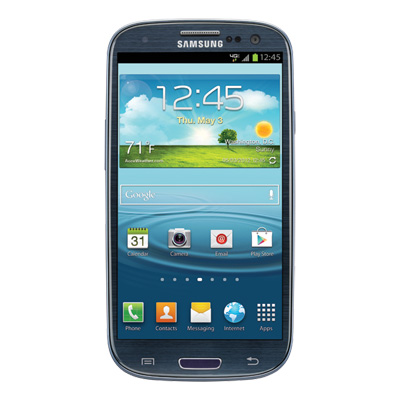
Verizon Samsung Galaxy S III Developer Edition is now available
The Samsung Galaxy S III for Verizon Wireless comes with a locked bootloader, which is a no-go for installing custom ROMs. To aid modders the South Korean smartphone manufacturer released the Galaxy S III Developer Edition, which is still locked on the same United States carrier but has an unlocked bootloader.
The Galaxy S III Developer Edition for Verizon Wireless is available directly from Samsung for $599.99 or $649.99 in 16GB or 32GB capacities, respectively, in Pebble Blue; both sell for $400 more than the models Verizon currently lists and have 30-day parts & labor warranty. The only problem is that the bootloader of the Verizon Samsung Galaxy S III can already be unlocked without purchasing a new smartphone at a premium, that is still locked on Verizon Wireless.
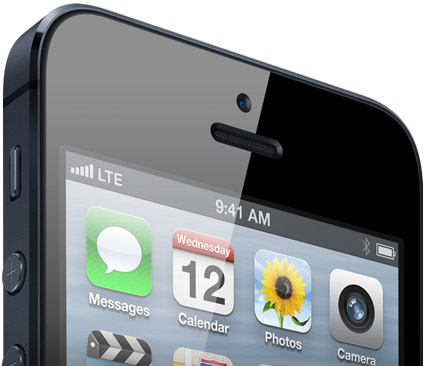
Verizon and Sprint iPhone 5 still doesn't have simultaneous voice and data
Bad news for anyone who finds themselves needing to look up something on Wikipedia when talking on the phone to their mom, the CDMA/LTE version of Apple's iPhone 5 will not support simultaneous voice and data (SVD). The pure GSM versions of the iPhone 5 will, however allow this feature, so the new buyer must beware.
For this feature to exist on Verizon and Sprint's networks, Apple would have had to install another wireless radio antenna in the iPhone 5. Of course, Apple only began offering CDMA iPhones last year, and those versions did not support simultaneous voice and data, either, so upgrading customers should already be well familiar with this missing feature.

Why aren't you mobilizing your business in the cloud?
Is your business cloud-ready? More importantly, are you using the cloud to mobilize your business? Mobile connectivity has become crucial to businesses, and in many cases a necessity. While on the road, it's important for your employees to have access to their email, mission-critical business applications, and the Web itself.
A recent study by research firm SMB Group showed that small-and-medium businesses are looking to mobilize, not only increase productivity but save money. Forty-four percent of all respondents said the ability to work from the field was a driving force in their mobile business strategy, while one-quarter say the ability to make decisions faster was a key factor.

Say goodbye to Verizon tethering fees
Sometimes, even the worst storm cloud has a silver lining.
Today, Verizon Wireless entered into a settlement with the US Federal Communications Commission that lifts the carrier's prohibition on free tethering apps. Verizon had blocked customers from using such apps -- there are plenty on Google Play for Androids -- without paying an extra $20 a month more for the privilege. As such, smartphone users now have a new reason to choose Verizon over AT&T, Sprint or T-Mobile, which aren't subject to the same rules. If you're a Verizon customer or soon to be one, the consent decree is a kind of Christmas in July present. You can tether for free.
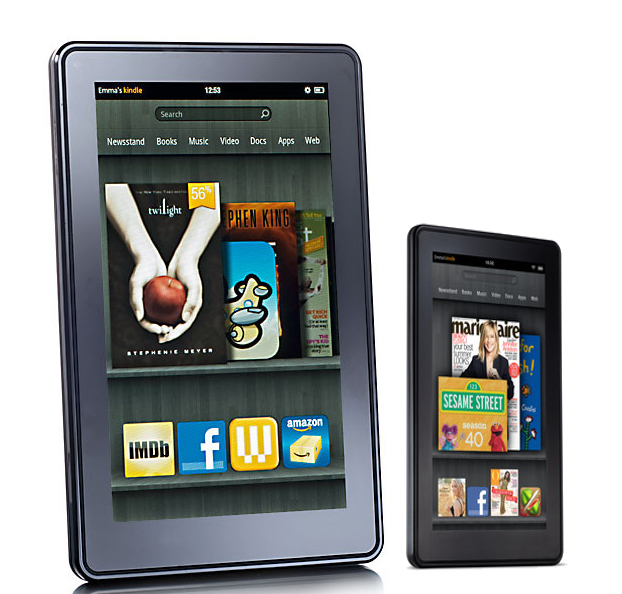
An Amazon Smartphone could be the biggest loss leader of all
Following up on reports from the fourth quarter of 2011, Bloomberg on Friday cited anonymous sources that said Amazon is working on its own Smartphone in conjunction with noted Chinese device manufacturer Foxconn International Holdings. Additionally, the report pointed out that Amazon is also on the market to buy more wireless patents, highlighted by the fact that the company recently hired a new general manager for patent acquisitions.
Contemporaneously with the Bloomberg report, approximately a dozen new job listings at Amazon popped up today for mobile software engineers that can support "existing Amazon technologies and [build] support for next-generation technologies."
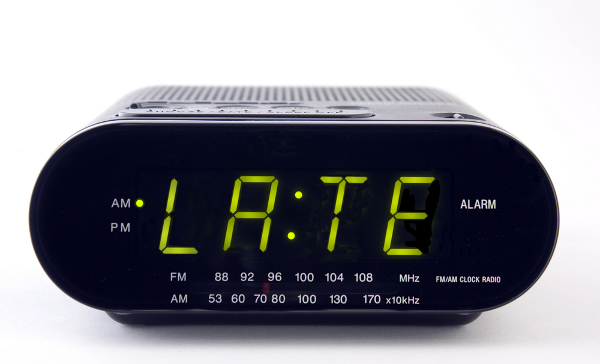
So much for Apple innovation: There will be 100 LTE phones available before the next iPhone
The high speed network technology known as LTE has built up a staggering momentum in the last year, despite Apple's iconic iPhone being late to the party.
There has been a good deal of speculation over whether the next generation of iPhone will include 4G LTE network support. The iPhone originally entered the mobile phone market on a 2G signal when networks were still upgrading and expanding their 3G coverage. The same is happening now with 4G, but it's gotten to the point where LTE has matured and the time seems right for Apple to adopt the technology.

Do network neutrality rules violate Verizon's freedom of speech?
June 2nd marked the return shots fired by telecommunications juggernaut Verizon against the Federal Communications Commission for fines the FCC leveled on them in regards to network neutrality. In a legal brief filed in Washington DC at the United States Court Of Appeals, Verizon and regional cell phone provider MetroPCS formally appealed.
Verizon claims that the FCC forcing them to keep all data traffic equal priority is unconstitutional -- that equal priority of data is an affront to carrier's freedom of speech.

Verizon Share Everything plan shares very little savings
I find it humorous to read a press release from a large telecom in regards to cellular service plans. They use powers of the telecom heavens to make their calling and data plans "easier" for simple, dumb mortals. Carriers play it up like they have come down from Olympus to give us fire. All so we can build temples to them faster.
Of the top-three of the pantheon of cellphone carriers, Verizon is the biggest of them all -- the Zeus of wireless, who can screw anyone in any form. It's pretty simple for them. They have the biggest lightning bolts if you didn't know. It's clearly in their commercials for the "lightening" fast 4G LTE data speeds. So when they have something they think is "game changing" they send their fastest messenger.
